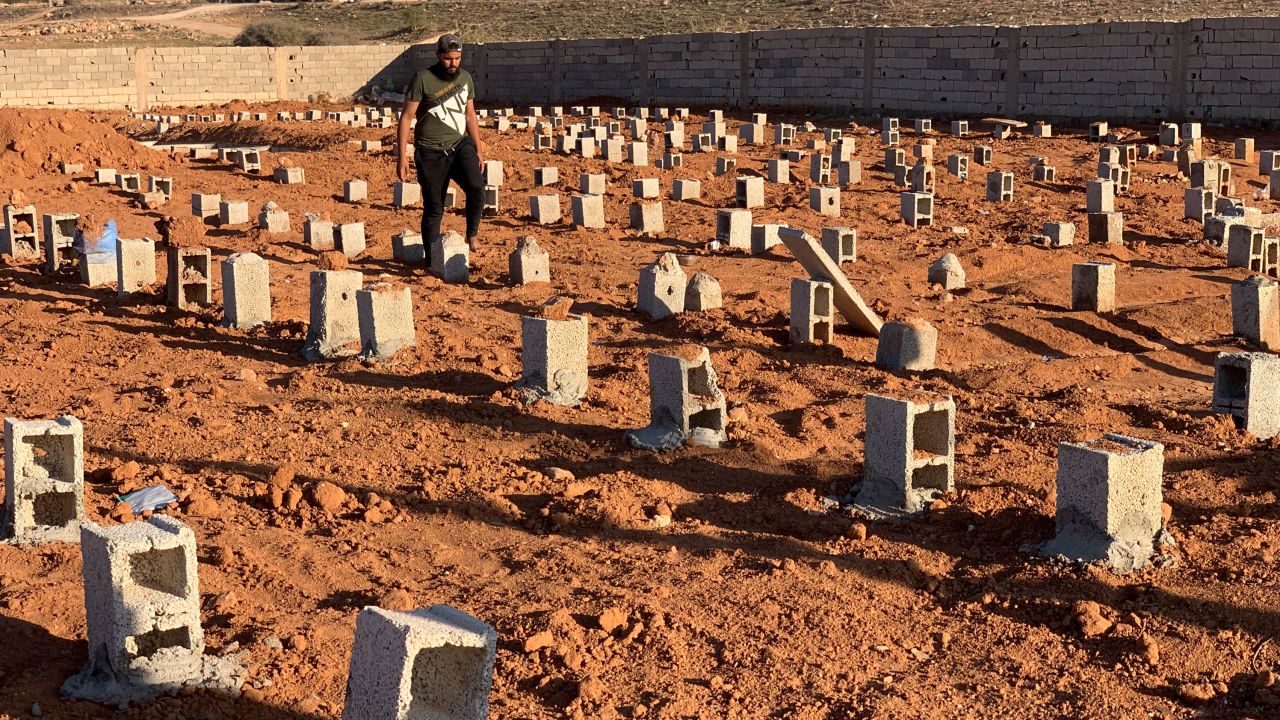Derna valley was once a ‘paradise.’ Now there’s nothing left but devastation
Tarek Fahim was taking recordings of the water filling behind the dam in the Derna valley in Libya late Saturday night. Up until 1:30 am, Tempest Daniel was simply wind and downpour. At the point when he returned home an hour after the fact, it required almost no investment between the second he heard the dam burst and the spouting water flooding his road.
"How much water and the vehicles it was pushing felt like a tremor," he says.
He moved the family to the housetop, and they scaled a water tank as the water continued to rise. They made due. "Perhaps one percent of the individuals who lived on ground floors made due," he says of his neighborhood around al-Fanar road.
At the point when the water level slowly subsided, he returned down to keep an eye on his neighbors, "however there was meter-high mud in the city," he reviews. "Simply in 15 structures around me, 33 individuals kicked the bucket," he says. As he begins posting the names of the companions he lost, he separates in tears.
Across the eastern Libyan city of Derna, thousands passed on and thousands more are as yet missing after a horrendous flood hit the city in the early long stretches of Sunday.

Tarek's exposed feet are shrouded in mud from strolling through the side roads assisting neighbors with going through the destruction of their homes. The injury and misfortune are noticeable on each face. Men sit before their emptied out houses, some quiet, others crying.
Across the road Talal Fartas is going through what survives from his adornments store, picking gold accessories and arm bands from the mud. "The safe was cleared away. Everything is gone," he says.
The consequence of floods in Derna, Libya on September 16, 2023.
The fallout of floods in Derna, Libya on September 16, 2023.
Ayman Al-sahili/Reuters
A man strolls by the graves of blaze flood casualties in Derna.
A man strolls by the graves of blaze flood casualties in Derna.
Yousef Murad/AP
Just couple of follows are abandoned of what the shops covering the road used to sell. Bits of metal hang from the roofs of destroyed out stores. Vehicles are wedged in patios and passageways of the low-ascent structures. A purple lunch box sits under a ruin of trees and light post. Two or three blocks up north, the rubble stacked up at the edges of the street ascends increasingly high until it turns into an area of flotsam and jetsam.
At the point when the two dams outside the city burst, they released a strong flood that evened out private blocks. The eastern and western pieces of Derna are currently isolated by a no man's land of obliteration that stumbles into the city the entire way to the Mediterranean.
Heros go through the imploded structures searching for survivors with little expectation. Practically all they find are dead bodies and more are accepted to be under the stores of disintegrated concrete.
Back at al-Fanar road, a man calls for help to recover the collections of four youngsters from under the mud.
Global guide and salvage missions are gradually streaming in, however they barely match the size of decimation. Neighborhood volunteers and crisis laborers from various pieces of Libya did what they could in the quick outcome.
Abdel Wahab Haroun, 21, says he recovered 40 bodies from the ocean on Sunday. He tied a rope around his midsection associated with a line of workers to overcome the high waves. "There were dead individuals all over, kids a couple of months old, old individuals, pregnant ladies. There are groups of 30-40 individuals generally gone," he says.

Haroun volunteers at an assortment point for the city's casualties set up at an open region close to the ocean. A spoiled smell occupies the air each time a dead body is gotten.
The remaining parts of two individuals are in half-filled dark packs on the ground. A pickup truck pulls up with two additional bodies enclosed by covers. "This one is excessively decayed," a worker yells prior to placing them in white sacks to stack on a greater truck. Authorities attempt to report characters when conceivable in front of mass entombments at an alternate area. A little truck disinfects the air intermittently as specialists and surgeons there caution of wellbeing dangers.
'Derna is gone'
Along the harmed promenade, volunteers in hazardous materials suits filter the ocean searching for cleaned up bodies. The gem blue water has transformed into a dinky brown. The waves push broken furniture to the shore. Destroyed vehicles are trapped in what survives from the wave boundary farther in the ocean.
"There are presumably individuals in these vehicles you find in the water, however we don't have the gear to contact them," says Ibrahim Hassan, top of the rescue vehicle administrations in Kofra, southern Libya.
He really wants weighty and more complex gear to recover these vehicles and quest the water for the assemblages of those actually absent.
"This valley was a heaven loaded with pomegranate trees," one worker says as she sits tight for next drop off of bodies.
"Derna is gone," Abdel-Wahab says.
No comments: